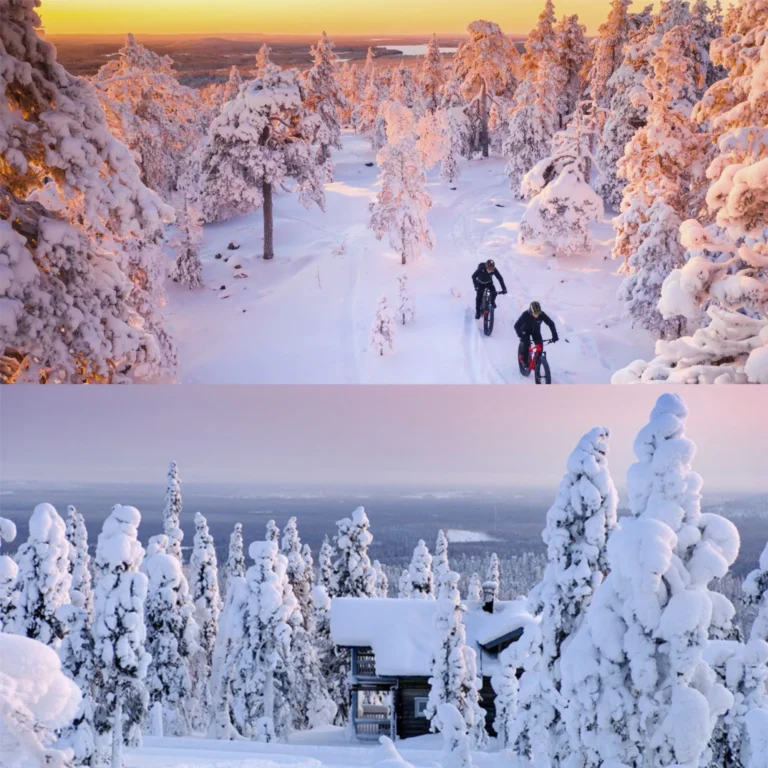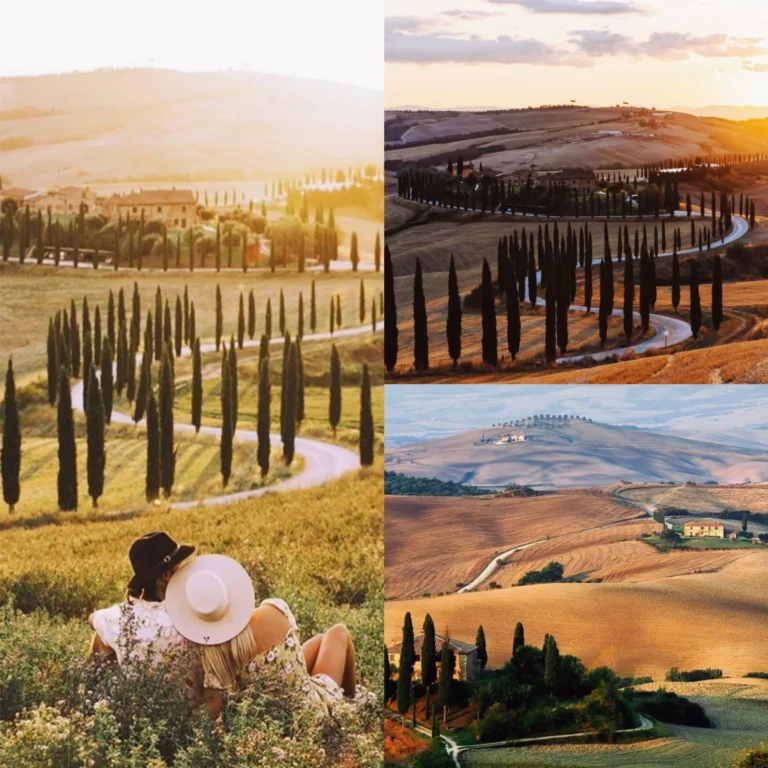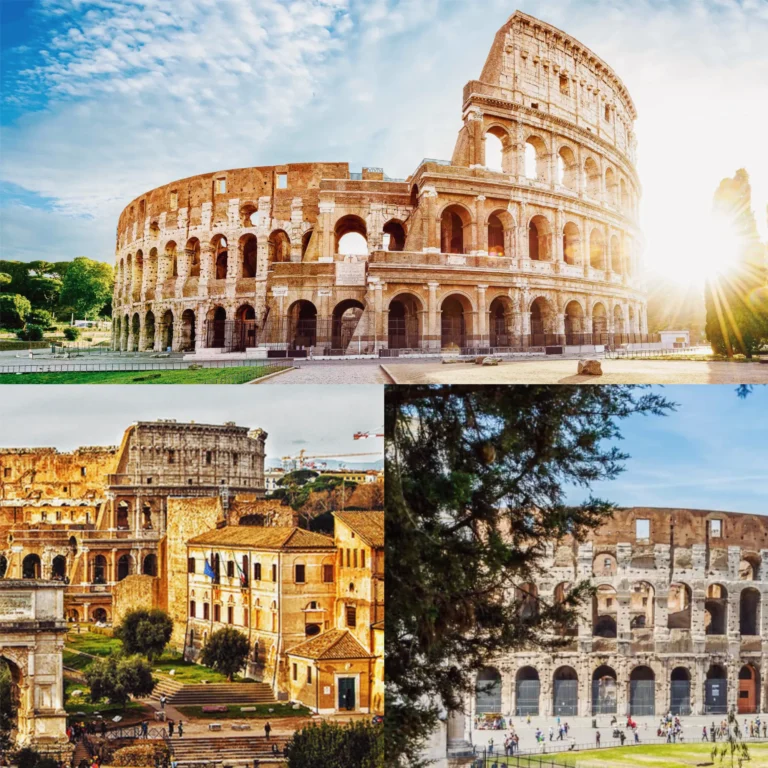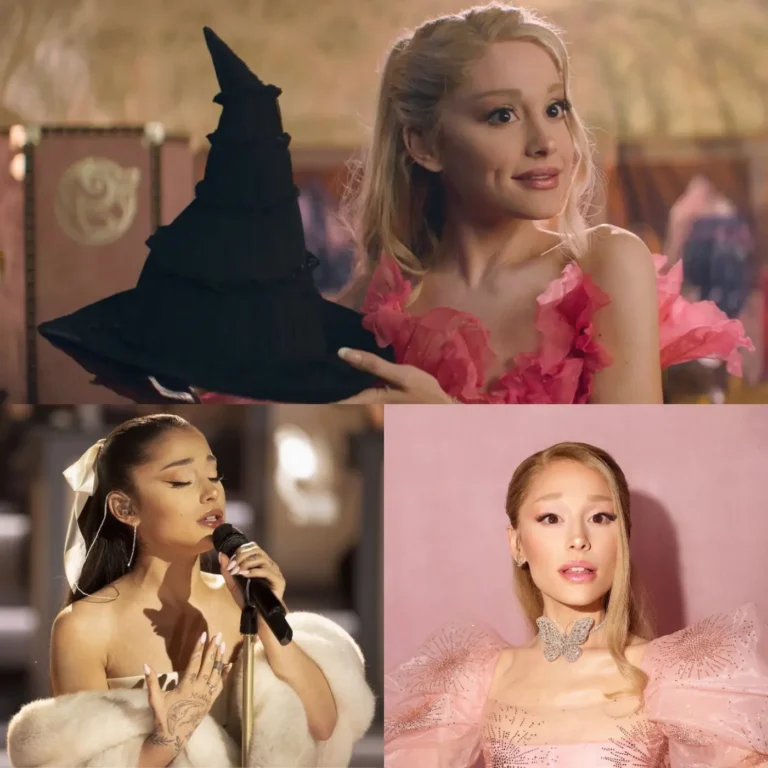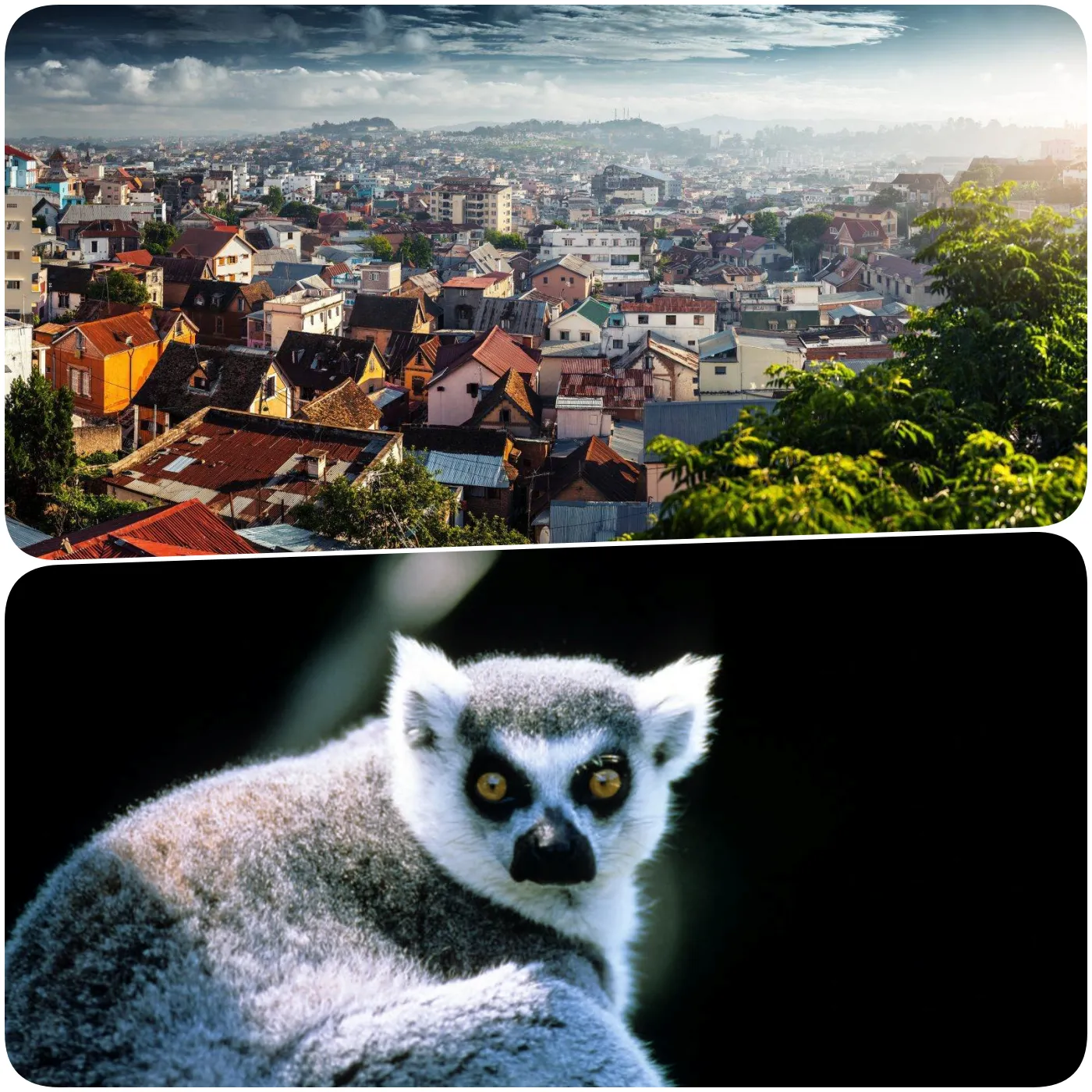
Discover Madagascar: Unexpected things in Madagascar
Madagascar, although one of the poorest countries in the world, captivates tourists with its wild and unique nature more than anywhere else. The natural wonders here are unlike any other place on Earth, making this a true paradise for nature lovers.
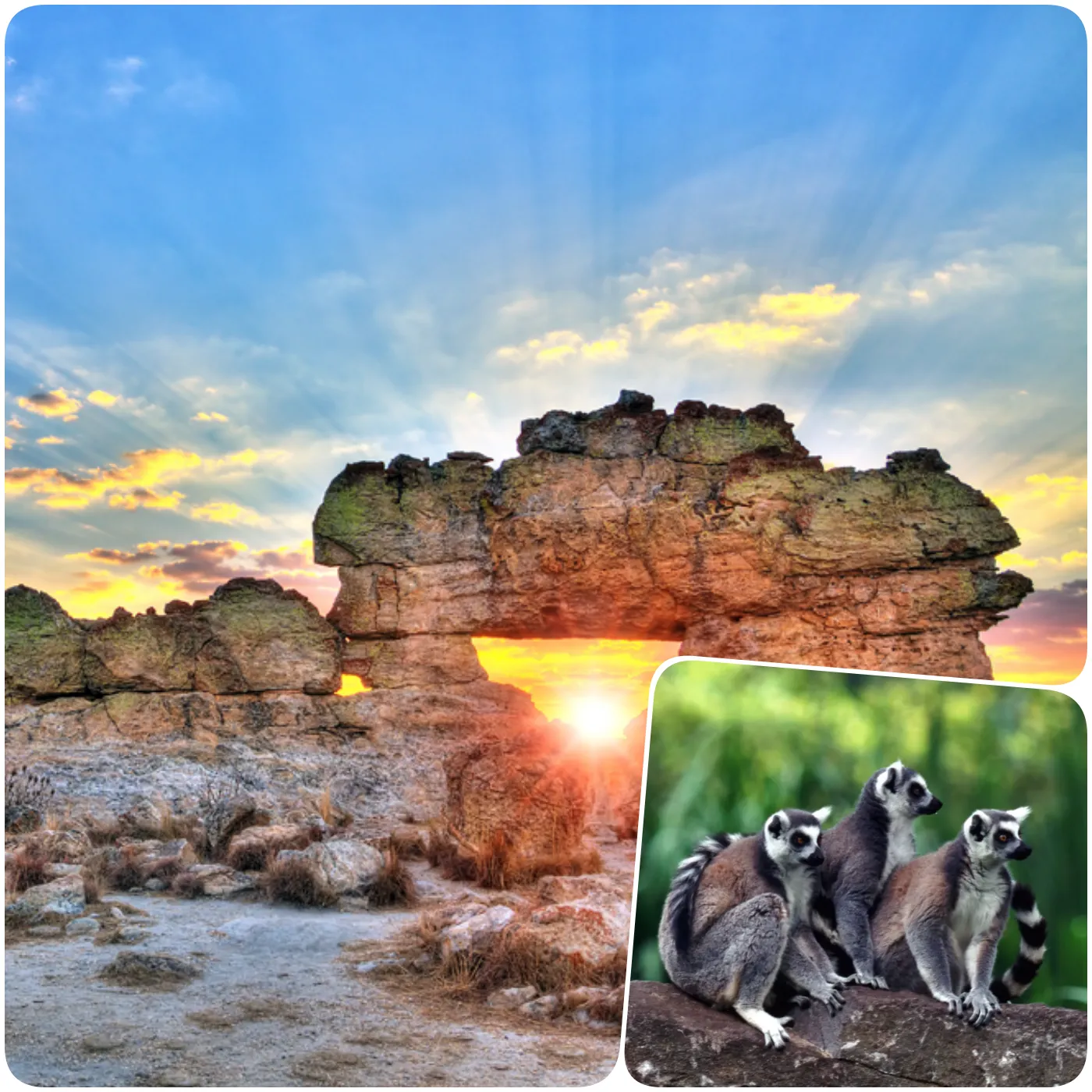
A unique ecosystem
Although Madagascar ranks among the poorest countries globally, it boasts biodiversity unmatched anywhere else. More than 80% of the plant and animal species found here exist nowhere else on the planet. This island separated from the African continent more than 160 million years ago, known as the oldest island in the world and the fourth largest after Greenland, Papua New Guinea and Borneo.
The island’s diverse geography and climate reflect the image of a small continent. Madagascar is home to tropical rainforests, deserts, rivers and mountains, creating a variety of microclimates. Depending on the season and location, the weather can vary significantly, from heavy rain to tornadoes. These natural elements contribute to the island’s rich biodiversity, including more than 200,000 species of wildlife. Among them are more than 100 species of lemurs that cannot be found anywhere in the world, more than 350 species of frogs and 370 different species of reptiles. For wildlife enthusiasts, Madagascar offers endless opportunities to explore one-of-a-kind ecosystems.
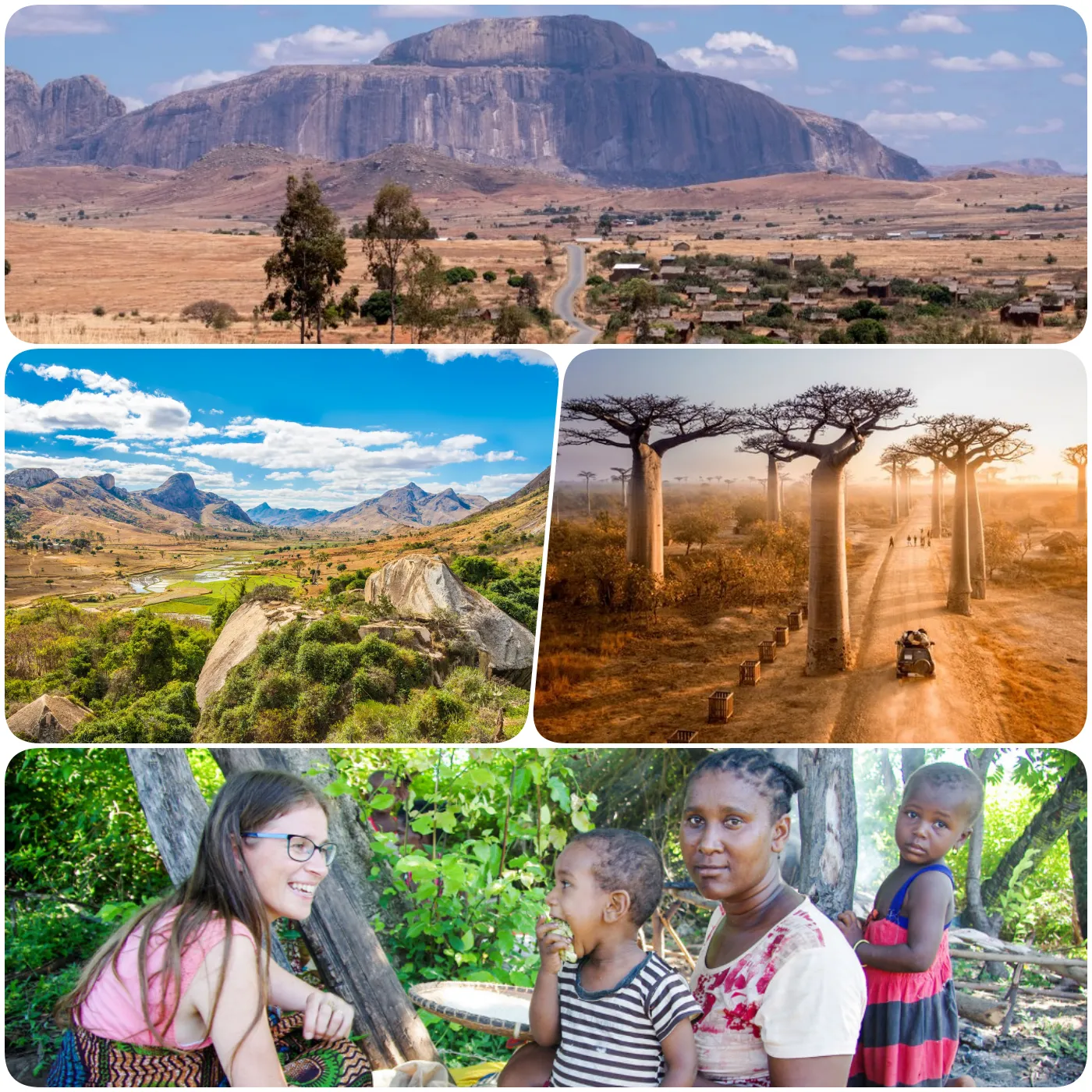
Mixing of cultures
Although Madagascar is located just off the coast of Africa, its inhabitants, the Malagasy people, are descendants of Southeast Asian settlers from Indonesia and Malaysia. It is believed that these people arrived on the island about 2,000 years ago, traveling by trade routes across the Indian Ocean. Malagasy culture still reflects influences from Southeast Asia, with unique religious rituals and the tradition of eating rice three times a day.
Visitors to Madagascar often comment on the warm and friendly nature of the Malagasy people. Whether in a bustling city or a remote village, you can expect to be greeted with friendly smiles and sincere hospitality. Despite the challenges of living on less than $2 a day, Malagasy people maintain a positive outlook on life, demonstrating resilience and a persistent spirit.
Environmental challenge
Madagascar’s natural beauty is undeniable but it faces serious environmental threats. Unfortunately, only about 10-20% of the island’s primary forest area remains intact. Decades of conservation efforts have been made to protect these ecosystems, but limited economic resources make progress difficult. Loss of forest cover poses significant risks to many species that cannot adapt to changing conditions or deforestation pressures from farming and grazing.
Adventure awaits
Despite the challenges, Madagascar remains an adventurous destination with thrilling activities such as rafting, surfing, mountain climbing, exploring crocodile caves and even diving with sharks. For those seeking excitement, Madagascar offers many opportunities to connect with nature and enjoy the island’s wild beauty.
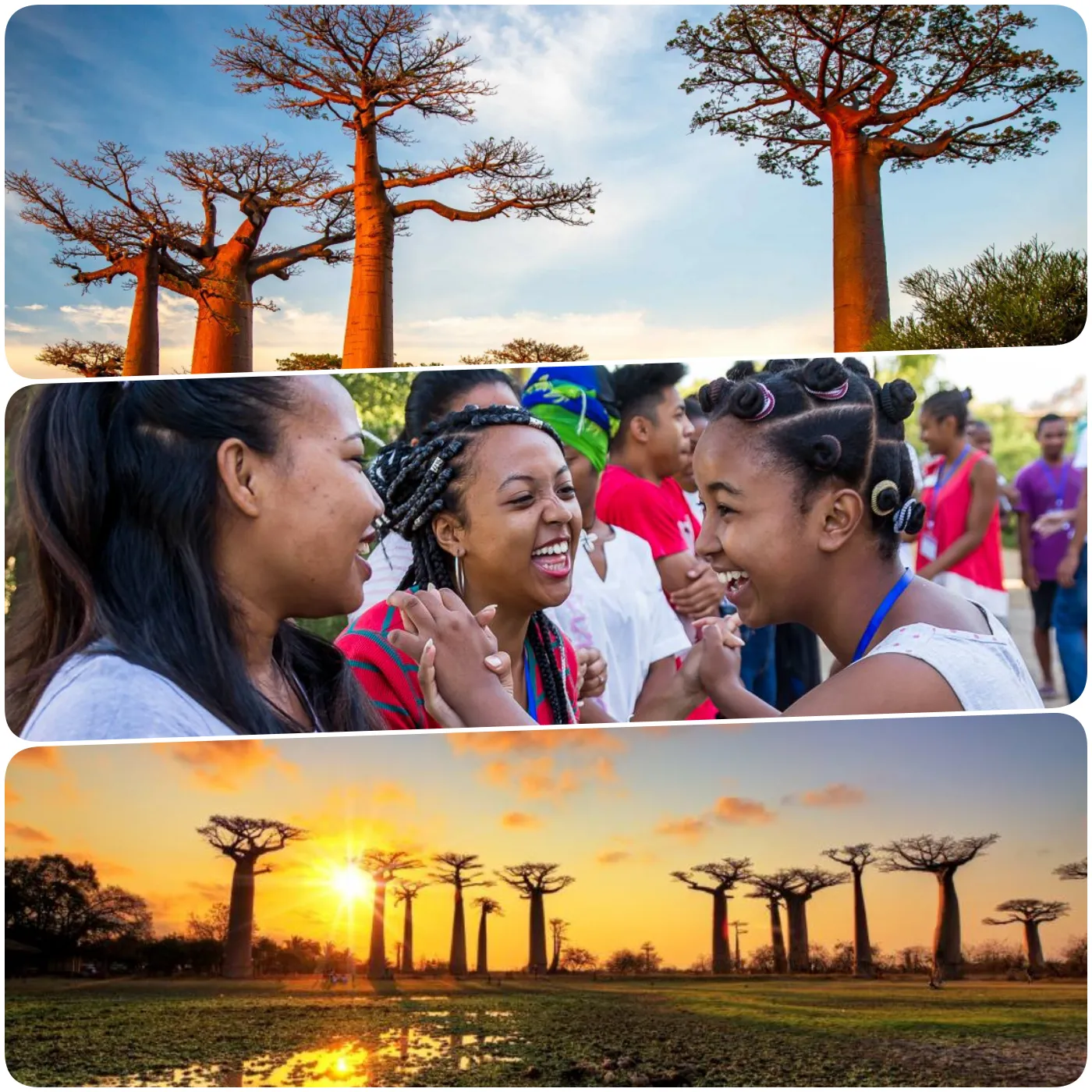
Madagascar is truly a magical land. The amazing diversity of wildlife and pristine landscapes make this a world treasure. However, poverty continues to weigh heavily on the island, leaving many species at risk of extinction. As rising water levels and deforestation threaten the fragile balance of the ecosystem, the need for sustainable tourism is more urgent than ever. The Malagasy government is seeking to promote tourism as an important source of income, helping to preserve the island’s natural heritage while supporting local communities.
Madagascar is a place like no other, offering visitors the opportunity to experience nature in its most pristine and unique form. From lemurs to baobab trees, rainforests to coral reefs, this island is a living testament to the magic of evolution and the resilience of life. Despite its economic difficulties, Madagascar’s rich culture, friendly people and exceptional biodiversity make it a truly unforgettable destination. As tourism grows, it brings hope for a brighter future for both the Malagasy people and the island’s wildlife.
